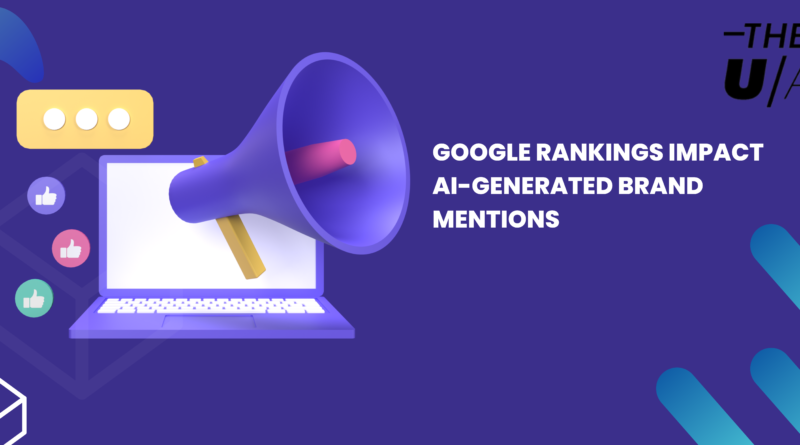The Link Between Google Rankings and AI-Generated Brand Mentions
The way we communicate with information has been completely redefined with AI-powered tools such as ChatGPT. In this respect, new research claims that Google search rankings may impact brand mentions in AI-generated content in unexpected ways. The latest research study by Seer Interactive unravels some exciting insights for the future of brand digital marketing.
Why Do Brands Care About AI Mentions?
Visibility is paramount in today’s competitive digital landscape. Brands strive to rank high on search engines to maximize their discoverability, and it appears that this visibility could extend beyond traditional search engine results into the realm of AI-generated content. With the rise of large language models (LLMs) like ChatGPT, there’s a growing need for brands to consider how their rankings on Google might influence their mentions in these AI-driven answers.
This trend brings in a new concept for digital marketing—optimization for generative engines, or what some people are calling “generative engine optimization.” By no means is it a replacement for classic organic SEO, but there is certainly a clear overlap, and that is, brands that reliably create high-quality relevant content have a higher chance of featuring well on both Google search results and AI-generated responses .
Findings from the research:
The study by Seer Interactive analyzed 10,000 questions in industries like finance and SaaS, processed through OpenAI’s GPT-4 API. The goal was to understand which brand names triggered mentions in AI-generated answers. Some surprising findings emerged:
- Rankings matter: A really strong correlation ~0.65 could be established with page 1 Google rankings on being mentioned by AI. A similar result showed Bing rankings where the correlation is less impactful around ~0.5–0.6.
Backlinks aren’t holy grail. Conventional wisdom in the realm of SEO indicates that the research found a significant impact in being mentioned in AI through backlinks as expected; on the other hand, they show a very weak or even null effect. - Content Diversity Did Not Really Matter: Another interesting finding from the study was that multi-modal content (e.g., adding images, videos, and text) did not really make a big difference.
This suggests that even though the classic SEO factors like backlinks and content diversity still count for organic rankings, they do not play a more significant role in AI mentions than assumed.
What’s Next for Digital Marketers?
Although the findings of the study do indicate a relation between AI and Google rankings, it’s apparent that it’s not just a Google rankings factor. As noted by the authors of the study, on-page strategies, PR efforts, and strategic partnerships will be researched further to uncover how they further contribute to the increase in AI-driven brand mentions.
Moreover, this is not the only study that shows the relationship between high search rankings and visibility in AI answers. Another independent study by Botify and DemandSphere discovered that 75% of links in Google AI Overviews originated from top 12 organic search rankings.
Conclusion
As AI continues to evolve, brands must adapt their strategies to stay ahead. Google ranking and brand mention in AI-created content is found to be the upcoming opportunity for marketers to boost visibility across traditional search engines as well as AI-powered platforms. As new trends in the digital marketing age continue to come and go, such as generative engine optimization, the importance of high-quality relevant content will come to the fore not only in climbing the Google ranks but in standing out to an increasingly central position among AI tools to our information consumption.
Keeping watch on emerging trends like generative engine optimization allows brands to get ready for what the future will be in digital marketing.
